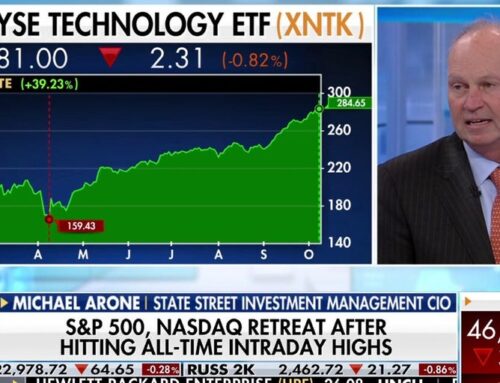Yale brings climate solutions to the global stage at Climate Week
October 9, 2025
Hundreds of Yale scholars, students, and alumni joined policymakers, business leaders, artists, and researchers from around the country and world last month for Yale at Climate Week, the university’s second annual summit in New York City convening diverse voices to shape scalable solutions to climate challenges.
During a two-day event (Sept. 24-25), the Yale Club of New York City was transformed into a hub of action and collaboration during Climate Week NYC, the largest climate event of its kind. Over more than 20 sessions, Yale Planetary Solutions (YPS) – the university’s campuswide initiative uniting leaders across disciplines to catalyze solutions to the greatest threats facing people and planet – brought together changemakers from across the political spectrum and society to participate in events that spanned law, economics, engineering, medicine, public health, policy, and the humanities.
“For a few days every fall, thousands come from across the country and around the globe to discuss, debate, and drive real progress toward a sustainable future. And Yale is proud to be part of it,” Yale President Maurie McInnis said during her opening remarks. “We know the national climate conversation can feel divided. But even as conversations change, our shared goals remain the same: healthier communities; stronger economies; a better world for our children. That’s the common ground upon which we can build a sustainable future.”

(Photo by Dan Renzetti)
A bipartisan commitment to progress
The call for common ground framed the conversation over the next two days. The summit’s opening night featured a bipartisan panel of current and former members of Congress on “Rebuilding Bipartisanship in the U.S. Environmental Movement.”
Anthony Leiserowitz, the JoshAni-TomKat Professor of Climate Communication at Yale School of the Environment and director of the Yale Program on Climate Change Communication, led a conversation with U.S. Rep. Bruce Westerman ’01 M.F., an Arkansas Republican, former U.S. Sen. Mary Landrieu, a Louisiana Democrat, and former U.S. representatives Carlos Curbelo (a Florida Republican) and Stephanie Murphy (a Florida Democrat), about the opportunity for bipartisan cooperation in enacting enduring climate policies.

(Photo by Dan Renzetti)
Westerman, who chairs the House Committee on Natural Resources (and says he’s the only forester in the current Congress), discussed forest management as one such example.
“A healthy forest has benefits for everyone,” he said. “You can clean air; you can clean water; you get better wildlife habitat; you get better recreation opportunities. I often tell people there are no downsides to having a healthy forest.”
Building a bipartisan initiative to support healthy forests, he added, can serve as a model for cooperation in other critical areas.

(Photo by Dan Renzetti)
Leiserowitz also noted data showing broad consensus among Americans on various climate solutions, including support for investing in clean energy research, helping farmers store carbon in soils, implementing a carbon-based tax on imports, and expanding tree planting initiatives. Panelists agreed that environmental challenges — from extreme weather to air and water pollution — are affecting communities nationwide, creating shared incentives for action.
“My hope is that representatives see that this isn’t a geographic issue. It’s happening within red states and blue states,” said Murphy. “My hope is that it lights a fire under us to actually do something about it because we feel it in local communities.”

(Photo by Dan Renzetti)
Climate action, the panelists stressed, cannot be the domain of one party or one discipline — a consistent theme that other panelists, attendees, and members of the Yale community returned to over the course of the Yale Club events.
Turning research into real-world impact
From rethinking decarbonization strategies to examining how climate change affects human health and psychology, sessions showcased how Yale research is driving change across industries.
Led by the Yale Center for Natural Carbon Capture (YCNCC), panelists described how Yale scientists are teaming up with companies that buy carbon credits to ensure the projects they support provide research-quality data that helps strengthen development across industries. Scientists can analyze insights from these real-world deployments to better understand what works and how to scale carbon removal projects, bridging a major gap between industry and research.
Another session highlighted Yale’s Map of Life platform, developed by the Yale Center for Biodiversity and Global Change and Yale Ventures, which translates complex biodiversity and climate data into actionable insights for industry leaders. In “Imagining a Healthier Planet,” artists and public health experts explored how creative outlets like visual art and music can improve physical and psychological well-being and inspire action in ways that policy alone cannot.


Yale Provost Scott Strobel emphasized the need for this cross-disciplinary work.
“No one person, no one field, no one organization will have all the answers,” he said during opening remarks. “We must connect engineers with ecologists, architects with epidemiologists, artists with geographers. To solve the interconnected crisis of climate change, biodiversity loss and the existential challenges they create, we must engage the entirety of our university community and the communities that we can convene.”

(Photo by Dan Renzetti)
Confronting challenges, charting new paths
Panels also took an unflinching look at what’s working — and what isn’t — In today’s policies, practices, and emerging technologies, spotlighting both obstacles and opportunities for climate progress.
Another session, “The Bad Science Behind Biofuels — and How to Fix the Climate Food Crisis,” unpacked how biofuel policies have reshaped land use, food security, and emissions, and pointed to reforms for a more sustainable and equitable future. Down the hall, Daniel Esty, the Hillhouse Professor of Environmental Law and Policy and director of the Yale Center for Environmental Law and Policy, joined panelists representing industry, academia, energy systems, climate justice, and policy to debate how artificial intelligence can be leveraged to accelerate climate innovation, while addressing the risks it poses on local communities and sustainable development.

(Photo by Dan Renzetti)
And at “Resilient Cities, Reimagining Health,” Yale researchers and partners across industry and government released a landmark report showing how rising temperatures and extreme weather patterns are changing public health needs and outlining practical steps cities can take to reduce costs, cut emissions, increase access to health care, and strengthen local economies.
Preparing the next generation
Much of the focus of the summit was on preparing the next generation to lead the climate transition. Students and alumni packed into career panels where industry leaders, policy professionals, and entrepreneurs offered candid advice on navigating their careers. In panels like “How can Industry and Academia Work Together to Solve Planetary Challenges?” Yale scholars and leaders from across sectors amplified the important collaboration between universities’ deep research enterprise and industry’s capacity to implement ambitious innovations.

(Photo by Dan Renzetti)
“The conversations we convene at Climate Week move ideas faster — from lab to market, from imagination to action,” said Julie Zimmerman, vice provost for planetary solutions. “Yale Planetary Solutions is helping connect disciplines and partners so that the solutions we need most are developed, tested, and scaled in time to make a difference.”
During Climate Week NYC, Yale alumni and community members also made their mark beyond The Yale Club. Jinali Mody ’23 M.E.M. was named one of three entrepreneurs to win a 2025 Young Champions of the Earth award from the UN Environment Programme and American cleantech CEO Chris Kemper for her company Banofi Leather, which turns banana crop waste into a plant-based alternative to animal leather.

(Photo by Abu Nuuman)
Award recipients will receive seed funding, mentoring, communications support, and a global platform to showcase and scale their solutions. Winners also received a $20,000 prize during Climate Week NYC and competed in the first-ever Planet A pitch competition for a business growth grant of $100,000 and a possible seed investment of $1 million committed to a future fundraising round. Kemper, founder and CEO of the U.S. climate tech company Palmetto, this year co-founded Planet A, a YouTube channel that drives environmental awareness and action.
In a private session during Climate Week, Yale experts also worked directly with the three winners, offering coaching from YPS, Tsai Center for Innovative Thinking at Yale (Tsai CITY) , the Yale Center for Business and the Environment, and Yale School of the Environment.
Beyond Yale at Climate Week
For Yale, Climate Week represented one integral element of a broader initiative focused on building scalable solutions to planetary challenges. Earlier this week, the university hosted an event celebrating the opening of the Living Village at Yale Divinity School, a residential complex designed to give more back to the environment than it takes. A five-year report on the impact of Yale Planetary Solutions will be released later this semester; efforts are underway to gather feedback to inform the next round of institutional climate and sustainability planning and goal-setting for the university; and members of the Yale community will play a role in November’s UN Climate Change Conference in Belém, Pará, Brazil.

(Photo by Dan Renzetti)
By bringing together expertise from across disciplines and professions, Yale is helping shape the collaborative frameworks that lasting climate solutions demand, said Sara Smiley Smith, the assistant provost for planetary solutions.
“It’s inspiring to amplify and celebrate the great work taking place across Yale’s campus and to help provide pathways to move ideas into action ever faster,” Smiley Smith said. “Each year we have thought about what more we can do to use our ‘Yale at Climate Week’ events to drive impact, and I’m excited by this year’s efforts to lean into collaborations with many different partners.
“We can do so much more when we seek these synergies and remain open and curious about new potentials for action.”
Search
RECENT PRESS RELEASES
Related Post



